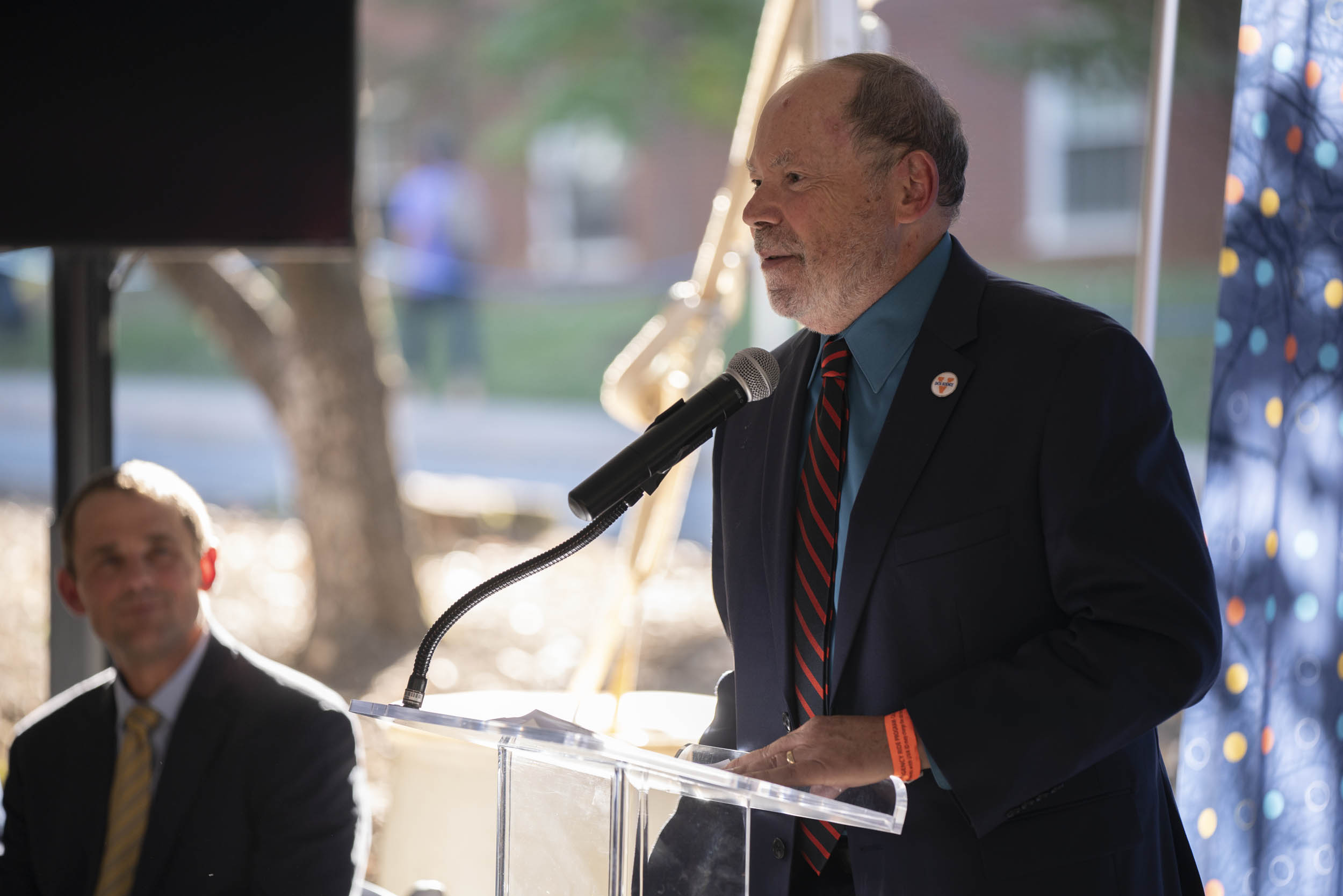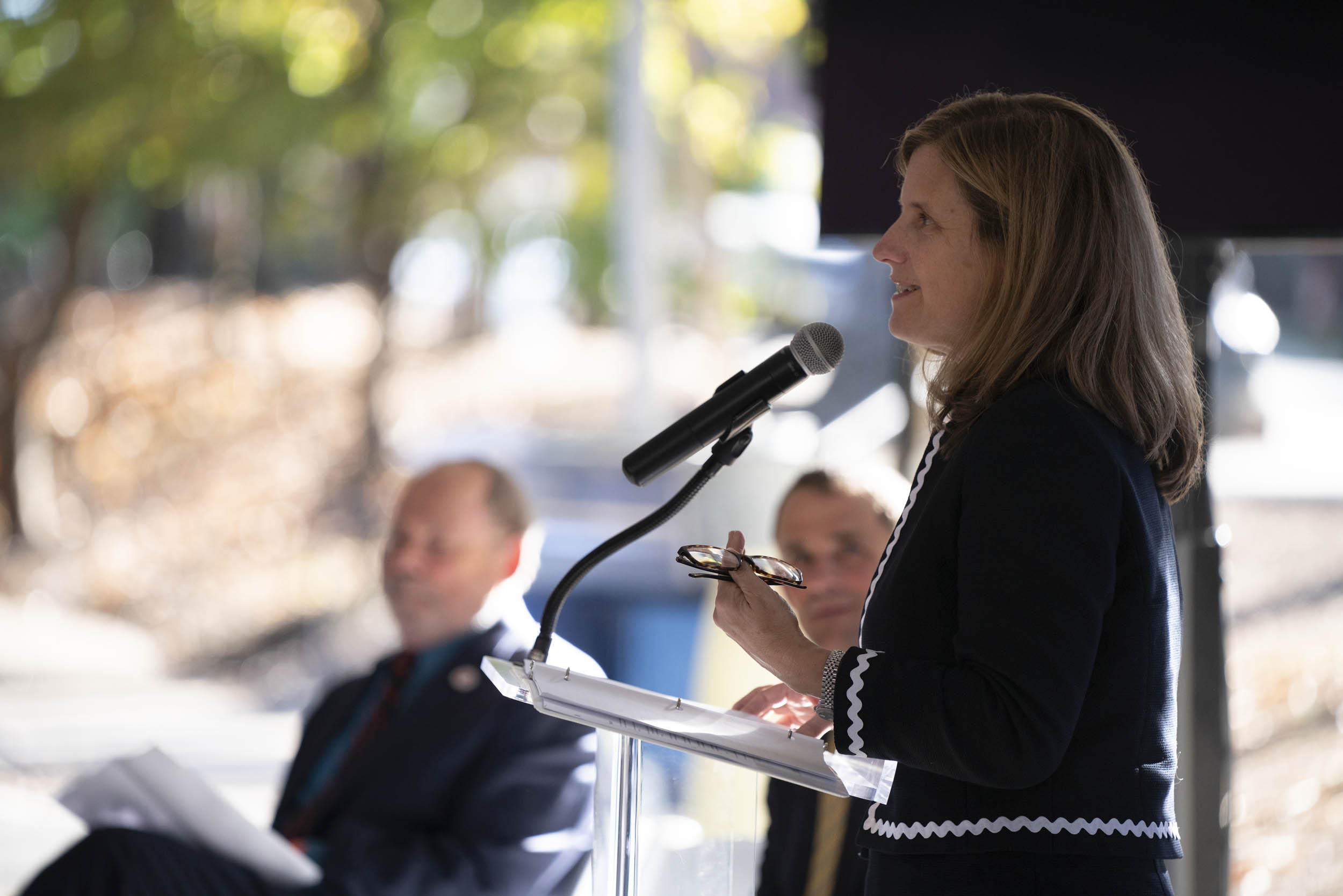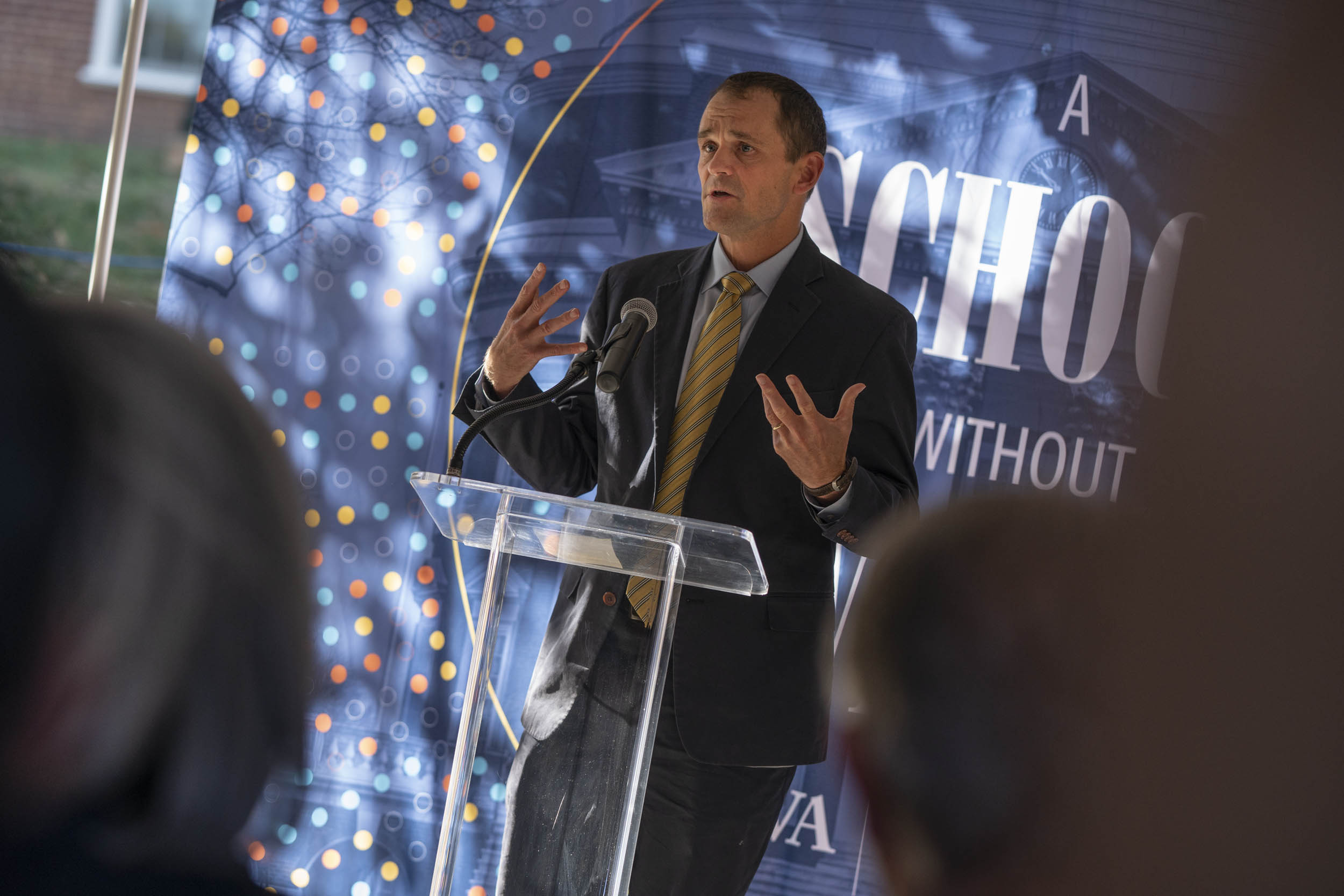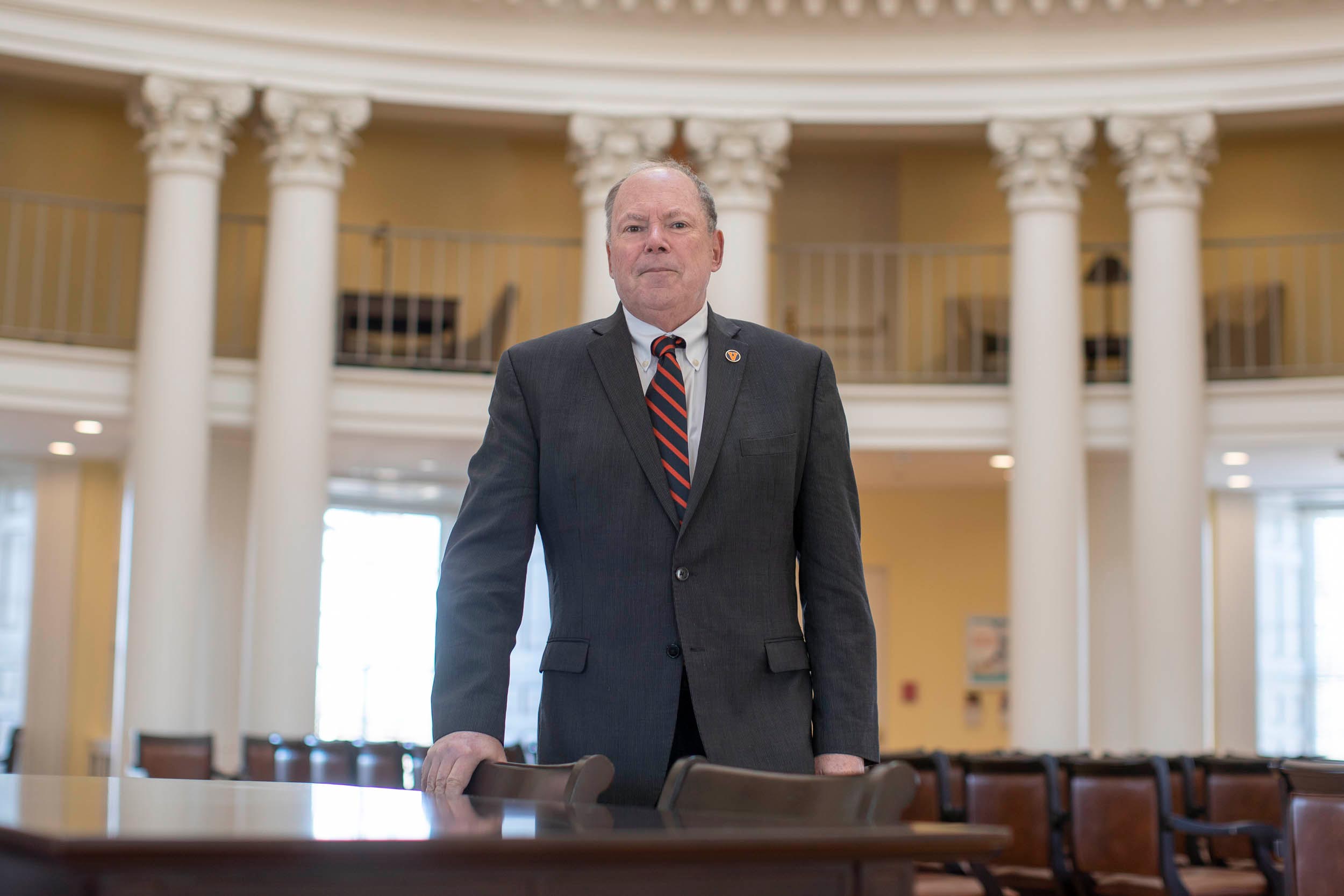The University of Virginia last week named Philip E. Bourne as the founding dean of the University of Virginia’s new School of Data Science. Today, the school officially launched with a celebration at 4 p.m. at Dell 1 on Grounds.
A leading data science researcher and administrator, Bourne came to UVA from the National Institutes of Health in January 2017 to direct UVA’s Data Science Institute and serve as the Stephenson Chair of Data Science and as a professor of biomedical engineering.
Prior to his tenure as a researcher and administrator at NIH, Bourne served 20 years on the pharmacology faculty at the University of California, San Diego, where he led innovation and industrial alliances.
He has founded four companies and published more than 300 papers and five books focused on biological and educational outcomes derived from computation and scholarly communication. He holds a Ph.D. in physical chemistry from Flinders University of South Australia.

Dean Philip E. Bourne of UVA's new School of Data Science spoke Tuesday during an official launch event that also featured Provost Elizabeth Magill and President Jim Ryan, seated at left. (Photos by Sanjay Suchak, University Communications)
As the new school began its launch, Bourne sat down to discuss the school’s future and the effects of data science on society.
Q. What will be your first acts as dean now that the school is officially underway?
A. Since we have been an institute for more than five years, we have some experience in how to operate. Becoming a school is the institute on steroids. Preparing for this moment, we have written a five-year strategic plan that includes how we will organize ourselves as a school and what we will focus on. This will become a public document shortly.
The first act is to be sure our whole team is behind all that we propose. It is part of the shared-governance model upon which the school is based.

Provost Elizabeth Magill praised the inherently interdisciplinary nature of the School of Data Science during a launch event Tuesday.
Q. What do you expect the school to accomplish in the next five years and beyond?
A. Our own strategic plan is a component of the overall UVA strategic plan, and thus our planned accomplishments can be defined around discovery, service and community.
Thus far, our discoveries have been based around a limited research agenda. That agenda will expand with new faculty, a Ph.D. program and a focus on leading-edge research. Since data science covers all fields, we can’t attempt everything and we will focus where we think we can have the maximum societal benefit, notably through research in biomedicine with an emphasis on neurodegenerative diseases and clinical translation, the environment, cybersecurity, business analytics, educational analytics and the digital humanities.
Obviously, this is still broad; and specific areas within each will be driven by the best researchers, which is critical to the school’s success.
In terms of service, we have a timetable, approved by the Faculty Senate and our leadership, for rolling out a Ph.D. program, undergraduate certificate program, undergraduate minor and four-year undergraduate degrees, as well as expanding our existing M.S. in Data Science program, both on-Grounds and online.
In terms of community, we are expanding efforts already underway as an institute with a strong focus on diversity and inclusion. Examples are the community data workbook sponsored by the Jefferson Trust and Charlottesville Tomorrow, various community hackathons and a machine-learning day at the Tom Tom Festival. All are designed to educate the community regarding the power of data use for bettering our community, and also the ethical consequences of its use.
“Good does not come just from a course on ethics, but from instilling ethical principles in all we do. The ethical consequences should be the very first thought associated with every action we take with data, from its acquisition through its analysis and dissemination. ”
- Philip E. Bourne
Q. Data science already is changing the world. How will society be affected by the middle of the century?
A. Thirty years from now is a long time in a data-driven world. Thirty years ago, personal computers were just becoming affordable. Who would have predicted that today we would have more than 2.7 billion smartphones, Wikipedia, social media, fake news and so much more?
Just as the changes of the past 30 years have affected us profoundly, so will data affect us profoundly in the next 30. I think of it this way: The internet is really just the physical presence – the body. Data and how we use that data define the soul – what lives on as the technology changes and what gives life to the internet. We are all guardians to this future, and whether it turns out to be good or bad is up to us.
Much of what we do professionally and personally will be driven by the results of data analysis. Society will be disrupted. It has happened before during the agricultural, industrial and computer revolutions. Society adjusted before, and it will adjust again, and each adjustment has provided an even better future for us all. We must all work to ensure this keeps on happening.

During the School of Data Science launch event, President Jim Ryan noted that this is only the second time in the past 50 years that UVA has created a new school.
Q. You are placing a large emphasis on ethics at the school, for faculty and students. Why is this so important in this field?
A. As guardians of a data-driven world, we have a responsibility to do good. Already we have seen well-publicized examples of how data science, either intentionally or unintentionally, has been used for nefarious purposes.
Good does not come just from a course on ethics, but from instilling ethical principles in all we do. The ethical consequences should be the very first thought associated with every action we take with data, from it acquisition through its analysis and dissemination. As such, data science is not just a STEM activity; the human component is vital and as a university with strong humanities and social science disciplines, we have an opportunity to make a unique contribution.
Q. You got into data science through a combination of talent, intellect, foresight and determination. How will you continue to push yourself and faculty toward excellence and a better future?
A. I think you are being over-generous in your assessment.
That aside, in 40 years in academia, I have not seen anything like what is going on now. It happened in my research field of computational biology over 20 years ago with data generated from the Human Genome Project, but what is happening now is pervasive across all fields, from democracy to organic chemistry. It is the opportunity to explore new disciplines and bring disparate disciplines together to solve problems using tools and methods that would not otherwise be known. What could be more fun?
Our faculty do not need to be pushed in that direction. We are hiring them because they are already charging down this path.
Media Contact
Article Information
September 24, 2019
/content/qa-dean-uvas-newest-school-looks-ahead-whats-next

